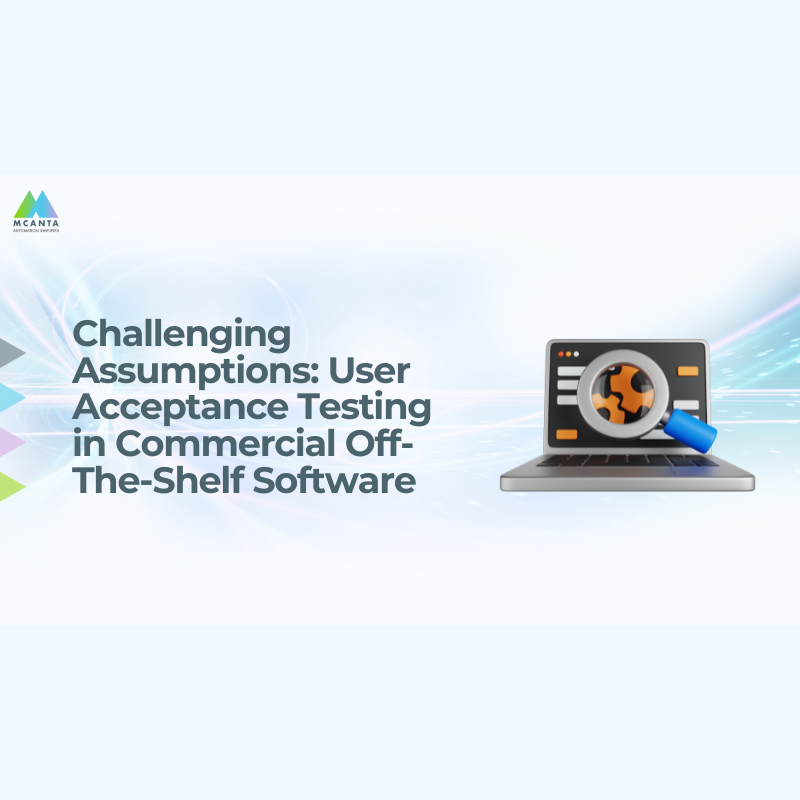When thinking of institutions that are known for aggressive innovation, The MUSH sector (Municipalities, Universities, Schools, and Hospitals) isn’t typically the first thing that comes to mind.
The public sector has been generally slower to adopt new technologies than the private sector1. However, when discussing the implementation of automation, the MUSH sector – contrary to people’s assumptions – is increasingly recognizing the value of automated solutions. This late-adopting sector is an early-adopter of automation.
Why is an industry typically known for being slow to embrace new technology, so innovative in the adoption of automation?
It all boils down to delivering value. MUSH institutions typically have limited or fixed budgets and small IT staff. Due to the limitations that they must deal with compared to their private counterparts they have to be extremely intentional about each technology they decide to move forward with.
Automation is a low-risk, high-value win.
Making use of Quality Assurance (QA) practices and test automation has been one source of low-risk wins for the MUSH sector. Specifically, automated functional and performance testing have proven to be game changers.
Why is MUSH at the Forefront of Automation?
One of the most significant sources of value for automated testing is freeing up human capital. We have seen three distinct groups of employees that reap these time saving benefits:
QA teams are relieved from the tasks of developing, organizing, performing, and analyzing tedious manual tests, freeing their efforts for higher-value tasks of monitoring and creating tests.
Other employees are no longer interrupted by requests from the QA team to conduct tests.
Application teams experience a faster testing turnaround time, which allows for quicker release cycles.
These time savings benefit other parts of the organization: Teams can spend more time writing new automated tests, “volunteer” testers can focus fully on their primary responsibilities, and application teams can move more quickly through each release.
The immediate time-saving benefits eventually introduce new opportunities for the institution to generate further value for their customers as well.
What is special about test automation over generic RPA (Robotic-Process Automation)?
At the surface level, any type of automation is going to eventually deliver value with its freeing up of resources, human or fiscal. The differences for test automation are the shifts it enabled in the Quality Assurance department and how they now operate day-to-day.
Even before test automation existed, the MUSH sector was heavily invested in testing systems – digital and physical – because they greatly reduced the associated risk. This need to reduce risk was exacerbated by the sensitive role these institutions hold: being in the public eye.
Test automation reduces risk by testing more extensively and in depth than manual-only testing. The QA department’s role then becomes facilitating tests and intervening manually when automated tests report suspicious or unexpected failures. These two strategies, manual and automated testing, weave together to add a new dimension of scrutiny and verification that further reduces risk over an all-manual approach.
Is there something profitable the private sector can learn from the MUSH’s sector experience with test automation?
Automation provides efficiency, capability, risk control, and eliminates factors that would negatively affect the end product.
One of the key challenges many businesses face, both private and public alike, is the extended time required to develop test cases, which delays their time to market. This delay results in lost revenue and missed opportunities. Test automation addresses this issue by reducing the time to develop and execute tests – as dramatic as from weeks to hours. This reduction in elapsed time ensures faster product launches and the ability to capitalize on market opportunities more swiftly.
It’s important to add that test automation also significantly reduces the risk of production failures. Manual testing is prone to errors and oversights that can lead to catastrophic system failures, affecting the entire system’s performance. By contrast, automated tests are repeatable and reliable, providing consistent results and minimizing the risk of undetected issues. This enhances overall system efficiency and capability while maintaining robust risk control measures.
Despite the organizational and operational differences between the sectors, a similar strategy can enable your organization to achieve results. In addition to test automation, an investment in the improvement in QA process in the MUSH sector has led to improved efficiency in their processes. It may even have more impact thanks to the greater QA resources and budgets associated with many private-sector institutions.
Automation aside, great ideas and inspiration can be found in the most unlikely places. Many day-to-day practices of the private sector can be traced back to new ideas piloted by the public sector.
For any company, the struggle of managing limited resources, much like MUSH, might inspire them to move forward with test automation.
What does this mean for your organization?
MCANTA has helped many organizations, providing them with the ability to conduct significantly more tests for the same cost compared to their current manual testing methods. This approach provides a more scalable solution, dramatically reducing overhead costs by optimizing processes.
Our success in the MUSH sectors is extensive. To understand just a little bit of what we’ve done, watch our full-length webinar, Automate to Elevate: Orchestrating Early Intervention Tests for High Education Digital Transformation. In this webinar, we discuss the entire journey of two universities, the University of Chicago and the University of Wisconsin, in their adoption of test automation technology, and how MCANTA was able to support them with Keysight’s Eggplant product and MCANTA’s implementation services.
The MUSH sectors have helped us refine our processes in finding solutions for our clients in private and public organizations. So how can MCANTA help you in your automation implementation journey? Contact us today to schedule a meeting and learn what MCANTA can do for your organization.



